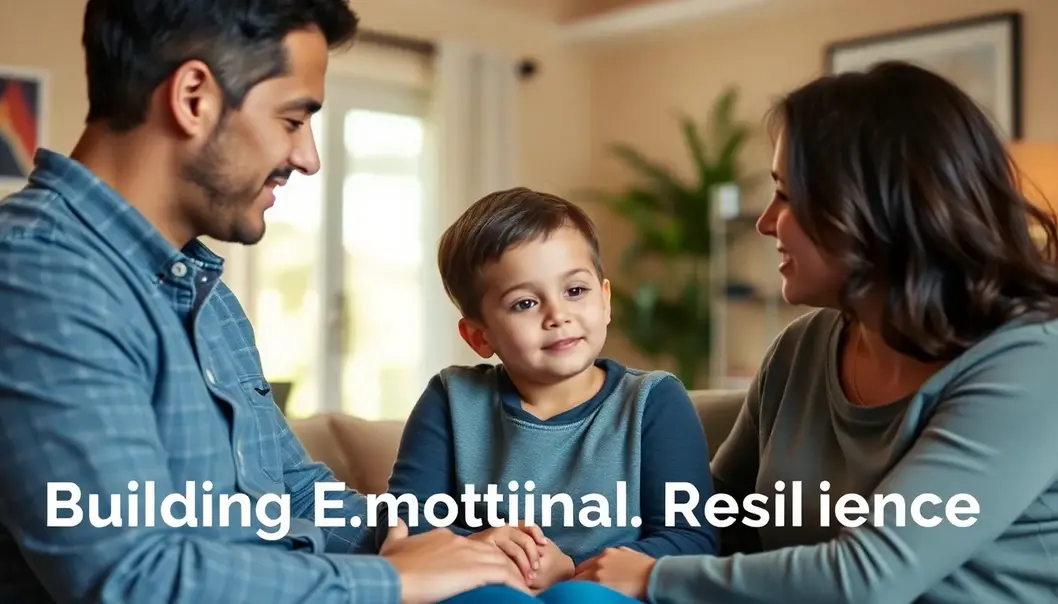Parenting is a rewarding yet challenging journey, often filled with unexpected emotional ups and downs. Building emotional resilience is not just about coping with daily stressors but thriving amidst them. This ability is especially crucial for parents, as they face the ongoing demands of raising children while managing their own emotional well-being. Empowering yourself with tools for emotional resilience can lead to a balanced life for you and your family. By adapting thoughtful and practical strategies, parents can enhance their emotional strength, creating a nurturing environment that benefits everyone.
Understanding Emotional Resilience

In the realm of parenting, emotional resilience represents the ability to effectively manage stress and bounce back from the daily challenges that arise in raising children. This resilience serves as a buffer, helping parents navigate the myriad of hurdles that accompany the parenting journey. Embracing emotional resilience allows parents to approach both triumphs and tribulations with a grounded mindset, fostering a familial environment where every member can thrive.
Central to nurturing this resilience is self-awareness. By understanding one’s own emotional triggers and responses, parents can better regulate their reactions and maintain composure during tumultuous times. This self-awareness acts as a foundation upon which emotional strength is built, allowing parents to model emotional regulation for their children, thereby fostering a cycle of resilience within the family unit.
Adaptability is another key element contributing to emotional resilience. The ever-changing landscape of parenting necessitates a flexible approach. Whether it’s adjusting to new routines, embracing developmental stages, or managing unexpected crises, adaptability helps parents remain open-minded and solution-oriented. This not only mitigates stress but also empowers parents to find creative solutions that contribute to a harmonious home environment.
A positive outlook ties seamlessly into the fabric of emotional resilience. By maintaining an optimistic perspective, parents can reframe challenges as opportunities for growth. This shift in mindset encourages perseverance and instills hope, both of which are contagious and serve to uplift the whole family dynamic.
Resilient families often thrive because they harness these elements to foster strong relationships and effective communication. This creates a support system that reinforces their collective strength and bonds. Indeed, families that practice emotional resilience experience a shared sense of purpose and unity, navigating obstacles together with confidence.
However, the path to resilience is not without challenges. Modern parents often face societal pressures, financial constraints, and a relentless demand for time and attention. Emotional resilience does not eliminate these issues, but it provides a toolkit for managing them. For instance, resilience enables parents to prioritize their well-being without guilt, ensuring they have the emotional capacity to support their children.
By cultivating emotional resilience, parents do more than cope; they transform challenges into learning experiences, paving the way for a resilient family ethos. As parents bolster their resilience, they empower their children to develop these critical skills, equipping the next generation with the ability to navigate life’s complexities with strength and grace.
Practical Strategies for Building Resilience

Building emotional resilience as a parent involves integrating practical strategies into daily life. A central aspect is embracing mindfulness. Mindfulness helps parents remain present, allowing them to respond thoughtfully rather than react impulsively to stressful situations. Practicing mindfulness can be as simple as dedicating five minutes each morning to focus on breathing or engaging in a short meditation session.
Another cornerstone of resilience is maintaining a robust support network. Relationships with friends, family members, or parenting groups provide emotional outlets and shared experiences, reducing feelings of isolation. Regular coffee meet-ups or even virtual chats can serve as mutually beneficial check-ins.
Setting boundaries is equally vital. Understanding personal limits and communicating these to family members ensures that energy is conserved for essential tasks and prevents burnout. Consider creating a family schedule that allocates undisturbed time for personal activities and enforces rest breaks.
Managing stress effectively is crucial to building resilience. Prioritizing self-care must be non-negotiable. Self-care doesn’t require elaborate routines; it can be achieved through small acts like enjoying a warm bath or indulging in a favorite hobby. These moments of personal indulgence recharge emotional batteries.
Fostering open communication within the family further enhances resilience. Encouraging children to express their emotions freely cultivates a supportive environment where everyone’s feelings are valued. Holding family discussions about daily highs and lows creates a narrative of shared experience and mutual understanding.
Incorporating these strategies into daily life takes consistent practice. Start by identifying one or two practices that align with your lifestyle. Gradually introduce these strategies into the routine. For example, begin or end the day with a mindfulness exercise. Set aside specific times for activities that strengthen your support network. As these practices become habitual, consider expanding to include additional resilience-building techniques.
Remember, building emotional resilience is an ongoing journey. By integrating these strategies into everyday life, parents empower their emotional resilience, forging stronger, more fulfilling connections with themselves and their families.
Final words
Emotional resilience is an essential asset for parents navigating the complex landscape of raising children. By understanding its importance and implementing practical strategies, parents can cultivate a supportive and balanced environment for themselves and their families. Developing this resilience not only aids in managing daily stresses but also enriches family interactions. Remember, small consistent steps towards emotional strength can make a significant impact.
Ready to strengthen your family’s emotional resilience? Visit our website for resources and support.
Learn more: https://www.parentingsupporthub.com/resources
About us
Parenting Support Hub offers comprehensive resources and expert guidance for parents to build emotional resilience and strengthen family well-being. Explore our workshops, articles, and personalized support to enhance your parenting journey.

